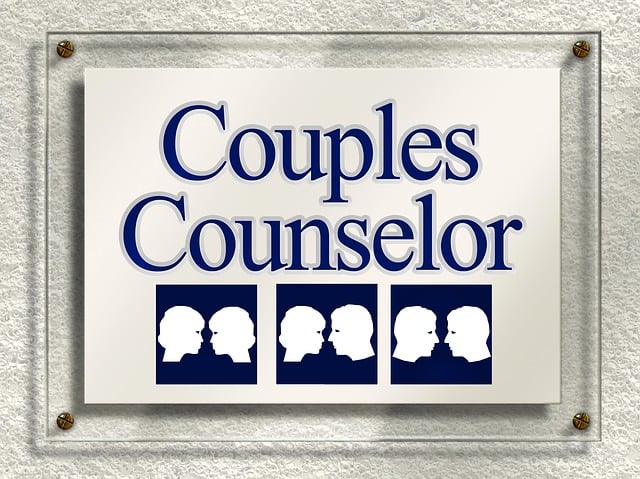Effective communication is vital for strong marriages, but miscommunication often arises due to emotional barriers, past experiences, and differing attachment styles. Couples counseling offers structured guidance to overcome these obstacles by teaching active listening, empathy, vulnerability, and open emotional expression. It emphasizes compromise, problem-solving, dedicated conversation time, and creating a safe space to navigate conflicts and deepen connections. Through professional support, couples gain tools for better communication, conflict resolution, and emotional intimacy, strengthening their bond and fostering healthier relationships. Post-counseling, maintaining open dialogue, regular check-ins, and learned practices are crucial for long-term relationship success.
Effective communication is the cornerstone of any strong marital relationship. In today’s fast-paced world, navigating life’s challenges requires coupled partners to foster open and honest dialogue. However, many relationships struggle with barriers like fear, defensiveness, or simply a lack of quality conversation time. This article explores essential strategies for enhancing communication, including active listening, emotion expression, compromise, and seeking professional guidance through couples counseling. By implementing these tactics, couples can strengthen their bond and create a lasting, fulfilling partnership.
Understanding the Importance of Effective Communication in Marital Relationships

Effective communication is the cornerstone of any strong marital relationship. In today’s fast-paced world, where demands on our time and attention are constant, it can be all too easy to let miscommunication take hold. When left unaddressed, this can lead to misunderstandings, resentment, and even distance between partners.
Couples counseling emphasizes the vital role communication plays in fostering intimacy, resolving conflicts, and building a deeper connection. Through structured dialogue and guided practices, couples counseling equips partners with the tools needed to express their needs, listen actively, and understand each other’s perspectives. This, in turn, strengthens the bond between them, allowing them to navigate life’s challenges together more smoothly.
Identifying Barriers to Open Communication Between Partners

Many couples struggle with open and honest communication, often due to various barriers that can hinder effective dialogue. These obstacles might include emotional defensiveness, where partners react with anger or resentment instead of expressing their feelings constructively. Past experiences, such as childhood traumas or previous relationships, can also cloud a person’s ability to communicate freely. Additionally, differences in attachment styles—how individuals connect and express love—can lead to misunderstandings. For instance, some may fear intimacy and keep emotions guarded, while others might become overly dependent.
Couples counseling plays a pivotal role in helping partners identify and overcome these barriers. Through professional guidance, they can learn healthy ways to communicate, resolve conflicts, and deepen their connection. This process involves fostering empathy, active listening, and the courage to share vulnerable thoughts and feelings. By addressing communication issues early on, couples can strengthen their bond, improve overall relationship satisfaction, and create a more harmonious home environment.
Active Listening: A Cornerstone for Meaningful Conversations

Effective communication in marriages is built on a foundation of active listening. This technique goes beyond simply hearing what your partner says; it involves understanding their perspective, emotions, and needs. During conversations, actively focus on your spouse’s words, body language, and tone to grasp the full context. Respond thoughtfully, reflecting back what you’ve heard to ensure clarity and validate their feelings.
In couples counseling, active listening is a cornerstone for meaningful interactions. It fosters an environment of trust and empathy, encouraging both partners to open up about their thoughts and concerns. By practicing this skill, couples can navigate conflicts more constructively, strengthen their bond, and cultivate a deeper level of connection.
Expressing Emotions: Bridging the Gap of Misunderstanding

In many relationships, misunderstandings can arise due to unspoken or repressed emotions. Couples counseling often highlights the importance of open emotional expression as a key to strengthening marital communication. By encouraging partners to articulate their feelings honestly and directly, barriers built up over time can be broken down. This process allows each individual to understand not only their own emotions but also those of their spouse, fostering empathy and intimacy.
Expressing emotions effectively goes beyond simply sharing how one feels; it involves actively listening to and validating the other’s perspective. Through professional guidance from couples counseling, partners learn to navigate emotional conversations constructively, ensuring that feelings are conveyed without accusations or defensiveness. This improved communication leads to deeper connections, better conflict resolution, and a stronger bond between spouses.
The Art of Compromise and Problem-Solving as a Couple

In the realm of enhancing marital communication, the art of compromise and problem-solving is a crucial dance for any couple. Couples counseling often emphasizes this dynamic as it serves as a cornerstone for a robust and loving partnership. Compromise isn’t about giving up or yielding to one partner; instead, it’s a collaborative process where both individuals find common ground and agree on solutions that honor each person’s needs and desires. This requires active listening, empathy, and a willingness to understand the other’s perspective—a skill set that can be cultivated through open dialogue and mutual respect.
Problem-solving as a couple involves tackling challenges together, viewing conflicts as opportunities for growth, and adopting a team approach rather than seeing issues as battles. Effective problem-solving in relationships includes clear communication, setting shared goals, and creating strategies to overcome obstacles. By embracing these practices, couples can foster stronger bonds, improve their conflict resolution skills, and cultivate a deeper sense of connection, all of which contribute to a more fulfilling marital journey.
Incorporating Time for Quality Conversations into Daily Life

In today’s fast-paced world, it can be challenging for couples to find dedicated time for meaningful conversations. The demands of work, family responsibilities, and daily routines often leave little room for quality interactions. However, prioritizing communication is a vital aspect of healthy relationships, especially in couples counseling.
Setting aside specific moments for deep talks allows partners to connect on a deeper level, fostering understanding and intimacy. It could be as simple as scheduling a weekly date night where the focus is on each other’s lives, aspirations, and concerns. Even a brief 15-minute conversation before bedtime can make a difference, providing an opportunity to share the day’s highlights and challenges. Incorporating these moments into daily life ensures that communication remains consistent and strengthens the bond between partners.
Overcoming Fear and Defensiveness During Discussions

Many couples struggle with fear and defensiveness during discussions, which can hinder open communication in marriages. These emotional barriers often stem from past experiences or deeper insecurities. Overcoming this challenge is crucial for successful couples counseling. One effective strategy is to create a safe and non-judgmental environment where both partners feel heard and respected. This might involve setting ground rules, such as no interrupting or blaming, and using “I” statements to express feelings instead of accusatory language.
During counseling sessions, professionals can guide the couple in exploring the root causes of their fears and defensiveness. By understanding each other’s perspectives, they can learn to respond rather than react, fostering a more constructive dialogue. This process encourages empathy, promotes understanding, and strengthens the emotional connection between partners, paving the way for better communication and deeper intimacy.
Seeking Professional Guidance Through Couples Counseling

Seeking professional guidance through couples counseling can be a transformative step for many marriages. This structured environment allows partners to explore underlying issues, gain new perspectives, and develop effective communication strategies with the help of a trained therapist. Couples counseling provides a safe space to address conflicts, improve understanding, and rebuild stronger bonds.
Through active listening, mediation techniques, and evidence-based approaches, counselors facilitate open dialogue and promote healthy exchanges. The process empowers spouses to identify unhealthy patterns, learn constructive ways to express their needs and emotions, and foster empathy and connection. Whether dealing with issues like communication barriers, infidelity, or simply a loss of spark, couples counseling offers valuable tools and insights tailored to each unique relationship.
Strengthening Bonding and Connection Post-Counseling

After completing couples counseling, strengthening the bonding and connection between partners is essential for maintaining a healthy relationship. This process involves creating opportunities for deeper conversations, actively listening to each other’s perspectives, and practicing empathy. By fostering an environment of open communication, couples can better understand and support one another, leading to increased intimacy and mutual respect.
Regular check-ins, where both individuals share their feelings, hopes, and concerns, are a powerful tool for reinforcing the bonds formed during counseling. These moments allow partners to navigate any challenges together, ensuring that issues don’t escalate and promoting continuous growth in their relationship. Through consistent effort and commitment to effective communication, couples can sustain a strong connection, even after formal counseling sessions have concluded.
